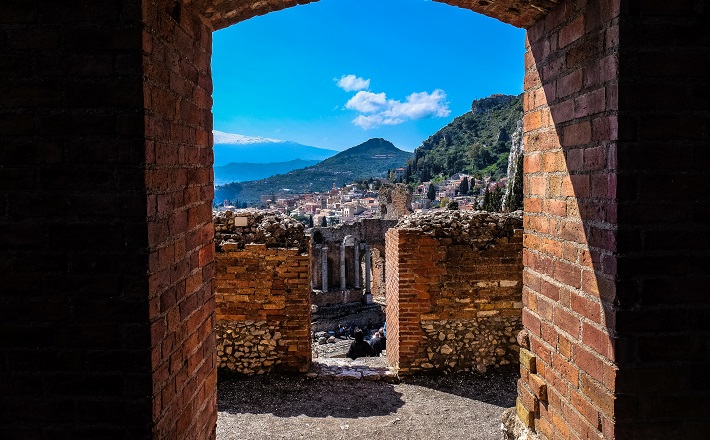Commentary on Isaiah 40:21-31
Every pastor has observed a person coming to faith for the first time, whether a sudden transformation or a gradual process, such as confirmation.
Every pastor has spent time strengthening the wavering faith of a person struggling with doubt. This passage deals with a different phenomenon of faith. How does a prophet enable people to poke around in the ashes of a long-dormant faith to find a small spark still left? All of Second Isaiah (Isaiah 40-55), offers hope and encouragement to questioning Judeans who have the opportunity to return from exile.
We can hear their questions: “why should I go back?” “How do I know God is in this experience, after decades of wondering if God had lost a cosmic battle, or had just abandoned us?” Using every rhetorical/poetic tool from soothing tones (Isaiah 40:1) to sarcasm (46:5-7), the prophet seeks to convince the Judeans that they are still the people of God. Our passage (verses 21-31) actually falls within a larger unit that begins at verse 12. The longer poem contains a surprising detour into idolatry. The RCL has us start just after that detour. The material from verses 21-31 continue the same themes that began in verse 12.
Here in this part of Isaiah 40, the prophet adopts almost a pleading tone, as he invites the people to reflect back on the understandings of God that initially brought them together and initially drew them into a relationship with God. The insistent tone of the questions seems perhaps designed to shake up the people, to force them to consider the questions the prophet asks.
Within these verses, the prophet paints a picture of a creative, strong, “above the fray” deity. If the people held any notion of YHWH losing out to the Babylonian deity, the prophet dispels that idea. God sits (an image of one undisturbed, unthreatened) above the dome that forms heaven and holds back the waters of chaos (see Genesis 1:6). God is transcendent and “other” enough that people seem like insects. The heavens form God’s “tent,” suggesting that God acted creatively and feels at home in the creation. The creation is God’s abode.
God exercises sovereignty over political and military authorities. Even though they seem powerful now, God has real power. Those who wield so much power now are, to God, like plants that a strong wind could blow over. God does not even need to touch the rulers to defeat them; merely the divine breath will accomplish that. God’s power and creativity mean that God has no earthly or heavenly equal. God stands alone.
After declaring the power of God over earthly rulers, the prophet returns to the theme of creation, interweaving his ideas. The defeated Judeans can lift their eyes to the sky to behold the heavenly bodies, who bear witness to the divine power and creativity.
By verse 27, the prophet switches gears to bring home the point that this powerful, creative God, sitting up above the heavens, cares about the Judeans. The God who exercises authority over the most powerful of people sees them. The people cannot hide from the deity.
This powerful, caring deity will provide the energy the people need for their journey back to Jerusalem. If their experiences have sapped their strength, they can draw on God’s strength for renewal. Isaiah 40:30-31 often appears on inspirational poster and shirts. Youth who run track often consider it a motivational word. These popular uses should not distract us from the deeper purpose. When life has worn us down, when the spiritual battle seems too fearsome, when we feel as though we cannot go on, the prophet offers us spiritual energy from the powerful, creative, but engaged God. The New Revised Standard Version does not quite capture the image of the second phrase from verse 31. The verse does not depict an eagle spreading its wings to soar and mount up, but rather a molting eagle who exchanges old wings for new.
In one sense, the prophet offers encouragement to go back. The scattered exiles can go back to Jerusalem from the far-flung regions of Babylon. In reality, though, they do not go back. They go forward. They accept a new adventure. The thesis sentence of this part of Isaiah comes in 43:19, that God does a “new thing.” The people will go back, but in reality, everything has changed. They cannot go back, they can only move into God’s new future.
The contemporary church cannot go “back” to anything. The church can only move forward into an uncertain world. Where would we start with the problems the church faces? Declining numbers and influence. A divided society that cannot seem to communicate. Threats both international and homegrown. What does the church need moving into that future? This passage offers a call to harken back to the faith that formed the church. That faith includes God’s power and creativity as well as the affirmation that God sees and knows us. God cares for us. God can give the church the energy it needs to move into an uncertain future. Although these words originally spoke to people whose faith might have faded nearly away, they can speak persuasively to people whose faith is shaky and tentative. They can speak a word of courage to those who see reason for fear in what the church faces.
No preacher can promise that the problems of the world will go away. But a preacher drawing on these words of the prophet can promise that a strong, creative God can give energy for whatever the church faces. This passage gives the preacher warrant to proclaim a God both transcendent, above the fray, and engaged with the world and the church. This powerful, creative God moves with the church as it goes forward into this uncertain and dangerous world. The passage gives the preacher permission to do some goading: “You believe this, don’t you? You trust God, don’t you?” Maybe less explicit, but with some challenge in the voice.


February 4, 2018